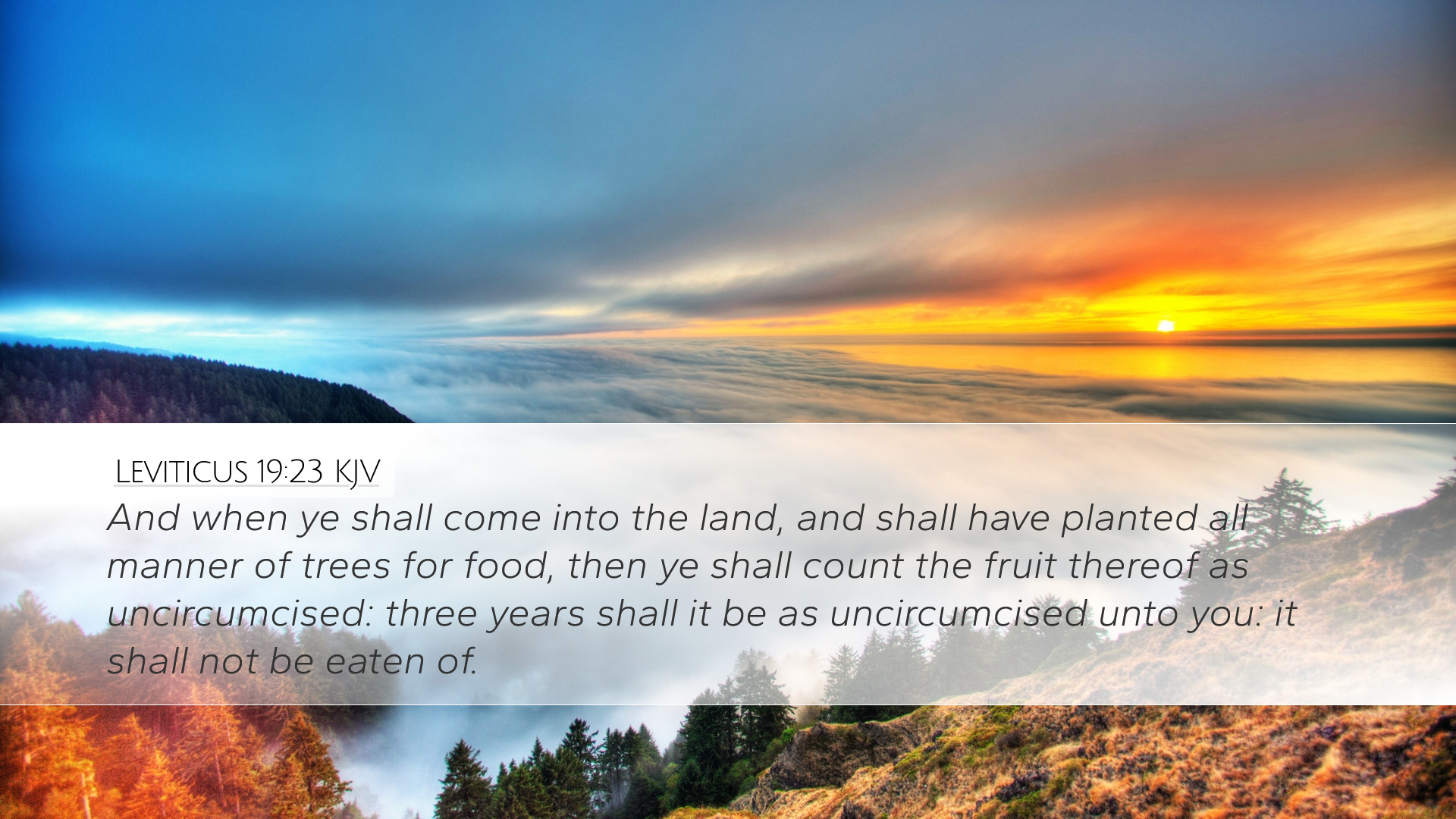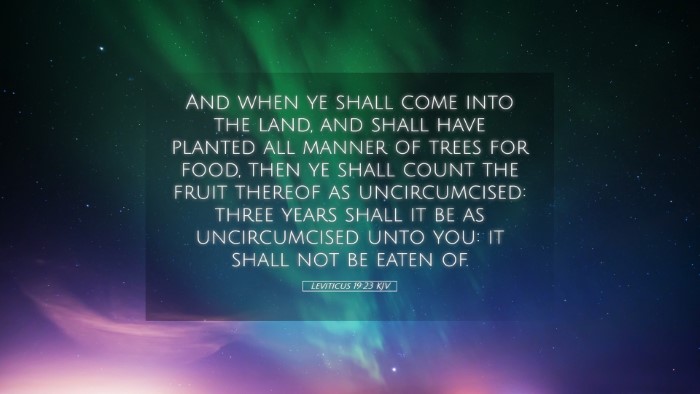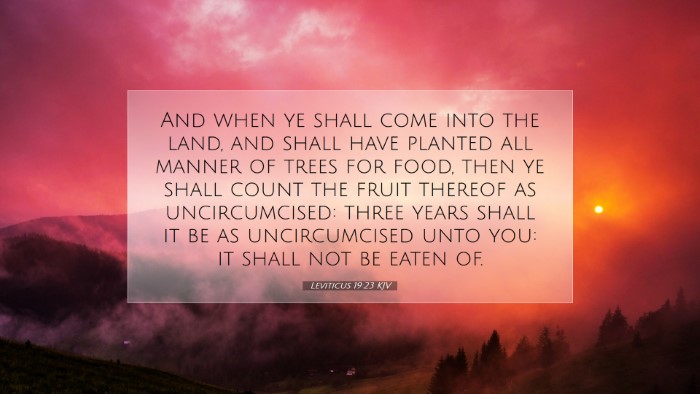Commentary on Leviticus 19:23
Bible Verse: "And when ye shall come into the land, and shall have planted all manner of trees for food, then ye shall count the fruit thereof as uncircumcised three years shall it be as uncircumcised unto you: it shall not be eaten of."
Introduction
This verse from Leviticus is part of God's instruction to the Israelites on various aspects of their life in the Promised Land. In this specific text, God outlines the concept of holiness in relation to food, emphasizing the importance of waiting for the trees to mature fully before consuming their fruits. Such regulations serve to instill a sense of reverence for God's creation and His prescribed order.
Contextual Background
The Israelites were given a law code that governed many aspects of their lives, including agricultural practices. Leviticus, a book primarily focused on holiness, sets these laws within the framework of God’s covenant with Israel. This particular verse falls within a section that addresses how the people are to express their covenant relationship with God through various practices.
Exegetical Insights
- Timing of Consumption: The command to wait three years before consuming the fruit underscores the value of patience and respect for God's natural order. Matthew Henry emphasizes that this principle of waiting signifies maturity and the fullness of the blessing that God has ordained.
- Role of Circumcision: The term "uncircumcised" used here metaphorically speaks to the state of the fruit as being unclean or not fully consecrated for use. Albert Barnes notes that this reflects the broader biblical theme of separation between what is holy and what is common.
- Moral and Spiritual Lessons: Adam Clarke points out that this law serves not only as agrarian wisdom but also speaks to deeper spiritual truths. The act of waiting can be seen as a period of testing and preparation, which God often requires in various aspects of the believer's life.
Theological Themes
- Holiness and Separation: The waiting period represents a time of separation, paralleling the call for the people to be holy as God is holy. God's instruction reflects His desire for His people to acknowledge His dominion over creation and the appropriateness of His timing in all matters.
- Patience in God's Ordinances: The three-year waiting period serves as a reminder of God’s timing in the natural world and the spiritual realm. For theologians, this speaks to the need for believers to exercise patience and trust in God’s plans, understanding that spiritual fruitfulness often requires seasons of waiting.
- Consecration and Dedication: This passage illustrates the principle of dedicating the first fruits to God. The first fruits of these trees were to be viewed with caution, emphasizing the need for purity in what is offered to the Lord.
Application for Today
For modern readers, this verse challenges us to reflect on our relationship with our resources and the blessings God provides. Key applications include:
- Appreciation for Creation: Encouraging a deeper appreciation for God's creation and the natural cycles He ordains. We are reminded not to rush into consuming or exploiting the fruits of our labor without proper consideration.
- Patience in Spiritual Growth: The spiritual metaphor of waiting underscores the importance of patience and perseverance in our own lives. Like the trees that take time to bear fruit, spiritual maturity requires seasons of growth.
- Dedication to God: This passage also prompts believers to reflect on how they dedicate the first fruits of their lives—time, resources, and gifts—to God and His service.
Conclusions
Leviticus 19:23 encapsulates profound principles regarding time, worship, and holiness. Through patient waiting and recognizing the appropriateness of God’s timing, believers are invited to enter into a more profound relationship with Him. This instruction, while rooted in ancient practice, continues to offer meaningful lessons for believers today, urging them to cultivate a deep respect for God’s creation and a commitment to living out their faith in all aspects of life.


